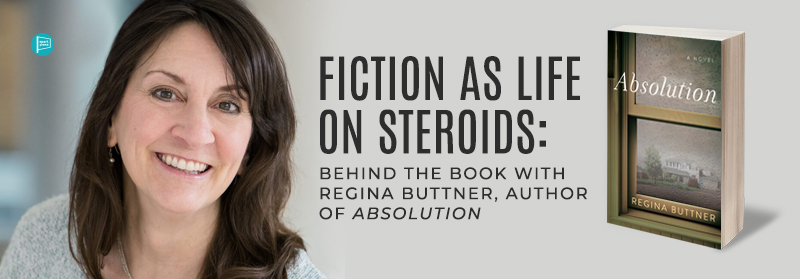
When I began my first draft of Absolution six years ago, I had no idea how to go about writing a novel. I didn’t know how to devise a plot structure or develop a character arc. I’d had no formal instruction except for a beginner’s class that focused on how to establish a daily writing routine rather than the actual mechanics of writing.
I had a vague concept floating around in my head: I was going to write a story about a marriage that goes bad, based loosely on my personal experience. And that was about it. I had no inciting incident (I didn’t know what that was yet), no point of no return, no climax or denouement.
Original Method of Writing
The best I could do to get myself started writing was to compile a list of potential scenes for the book. I ended up with two full pages, which gave me a lot of ideas to work with. Each time I sat down to write I would pull out that scene list, pick the one that resonated with me on that particular day, and begin writing.
After a year and a half of employing this method, I had exhausted my scene list. I then arranged the scenes into a logical order, and edited them for grammar and sentence structure. Six months later, I had a story of about 80,000 words. I actually thought my book was done. Oh my goodness, was I ever mistaken!
Advice from a Developmental Editor
I sent my “completed” manuscript to a developmental editor, and she reeled my naive expectations back down to the earthly plane. Her feedback was this: I had produced a decently written first draft, but the story lacked emotional appeal. I hadn’t made a strong enough case for why my main character, Jeanie, stays in her dysfunctional marriage for so long. The editor’s other criticism concerned the story’s pace, which was sluggish. She pointed out that while real life tends to unfold slowly and change is often incremental, fiction is life on steroids. She sensed that my story was rooted in memoir, and therefore the events depicted in it were quite realistic; but I risked losing my readers’ interest if I didn’t speed up the action and give Jeanie a stronger motivation for staying with her husband.
I sat at my kitchen table and pondered this advice. I had labored over my book for two years and I didn’t think I had it in me to reimagine and rewrite the whole thing. I was close to despair, but I knew I couldn’t give up after pouring so much time and passion into my story.
The Jeanie character I had created was quite a bit like me—she came from a traditional Catholic family, and she’d been taught to take the sacrament of marriage very seriously. She could barely countenance divorce, even when her relationship with her husband was at its worst. So what could possibly be compelling her to stick with it? Shame and denial were likely motivators. Or perhaps a guilty secret.
I had found the key to my story! Jeanie was concealing something awful from her past, and she believed the consequences of that secret coming to light would be far worse than the daily miseries of her marriage.
Employing the Advice
Something wonderful happened when I got back to work on the book. The process of figuring out the details of this perceived “sin” in Jeanie’s past enabled me to wrench the story out of the realm of memoir and deposit it solidly in the land of fiction. My entire story arc changed as a brand-new plot line emerged. Jeanie’s character deepened and became more sympathetic, and the supporting characters became real people rather than the cardboard cutouts they used to be. I was amazed at how they began to practically write themselves.
It wasn’t all smooth going—there were days when the story languished in a plot rut and it was a struggle to pull out of it. At those times, I would remind myself that it was okay to raise the stakes, speed up the action, or exaggerate the consequences. Readers crave a protagonist who has to grapple with threats and major obstacles along the way to her goal. They enjoy seeing their favorite characters overcome daunting setbacks, and to prevail in the face of overwhelming odds. It might not be real life, but it makes for a great story. Fiction is indeed life on steroids.

Leave A Comment